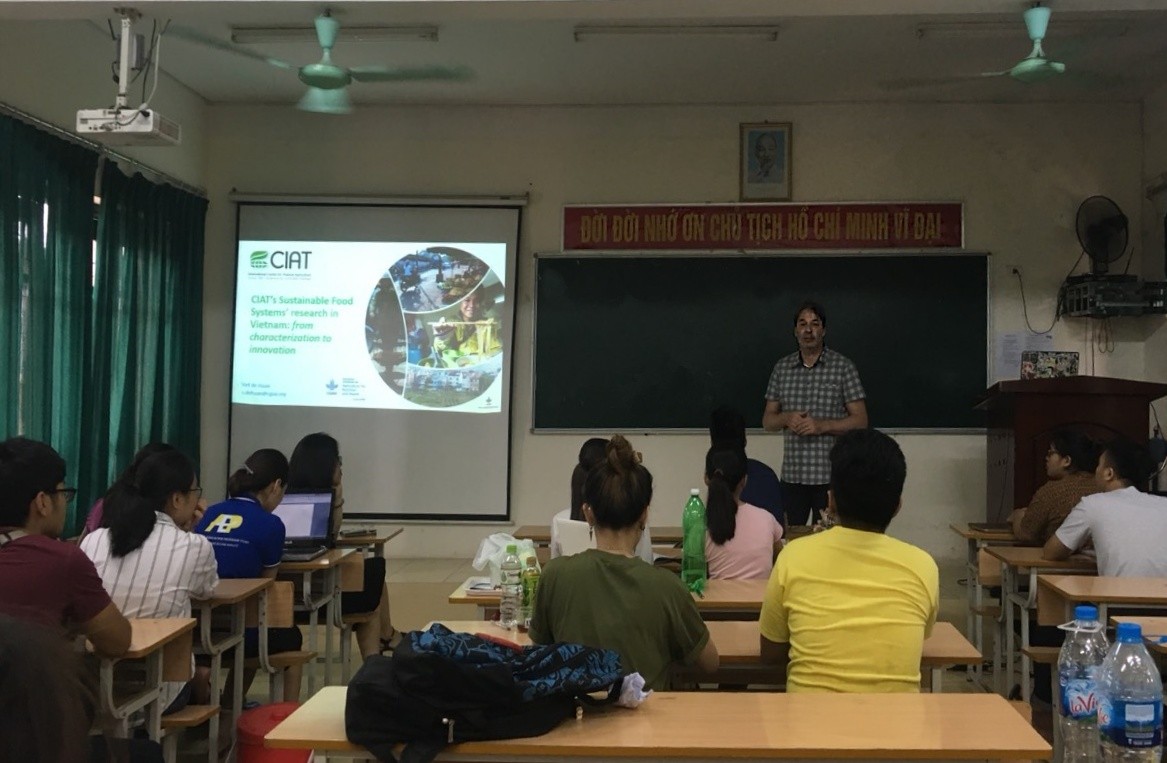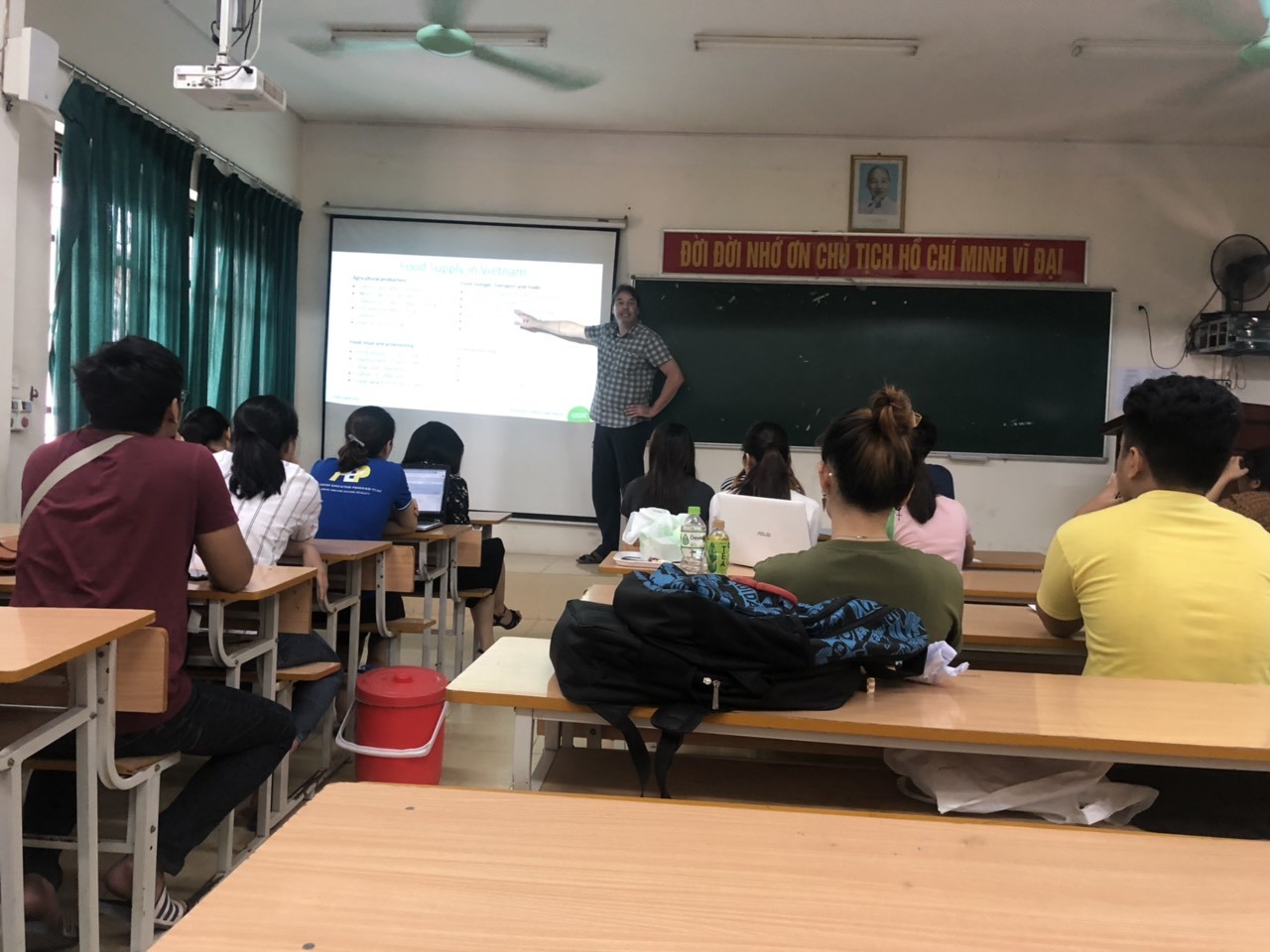Dr. De Haan from CIAT had a seminar with K48 Food Technology during his visit to TUAF
During his visit to TUAF as a representative of CIAT, Dr. Stefan De Haan participated in a seminar with AEP students in the Food Technology program. In the seminar, Dr. De Haan gave a briefing with examples on environmental footprints, food waste management and the impacts as well as detailed information on the consumption habits of the world. He also discussed the food distribution in Southeast Asia from wholesales to the supermarkets and restaurants as well as from farms to the consumers.
Dr. De Haan explained to students how the food supply systems have impact on the human health due to the expansion of processed food consumption. Not only he gave ideas on meat-based food but also plant-based. For example, thousands of acres of forests have been destroyed to plant soya in Brazil and Indonesia, which have an enormous global effect to the other sites of the world. He mentioned, not only having negative impact to the human body and the environment but also plant-based food can affect adversely to the global biodiversity.

During the speech, Dr. De Haan showed various kinds of research on food supply systems, in that, people do not give priorities on the nutrition but cheap price. These systems could have social, environmental, economic and nutritious consequences, resulting from global change. For example, in Vietnam, consumption of fresh food is higher than any other countries, contains necessary nutrition. Although Vietnam needs a lot of fresh meat but they are getting familiar and slowly started accepting the processed food, which comes from the soya, that cultivate in other sides of the world. The soya plantations need more pesticides and lands, which impacts on the environment.

At the end of the seminar, there was questioning time for students. Dr. De Haan explained various opportunities in CIAT for AEP students. Students will have opportunities to work in soil and microbiology laboratories, remote sensing centre, sustainable foodsystem research. Students also can take part in part time research, do short assignments projects, master thesis projects and take internship programs.
